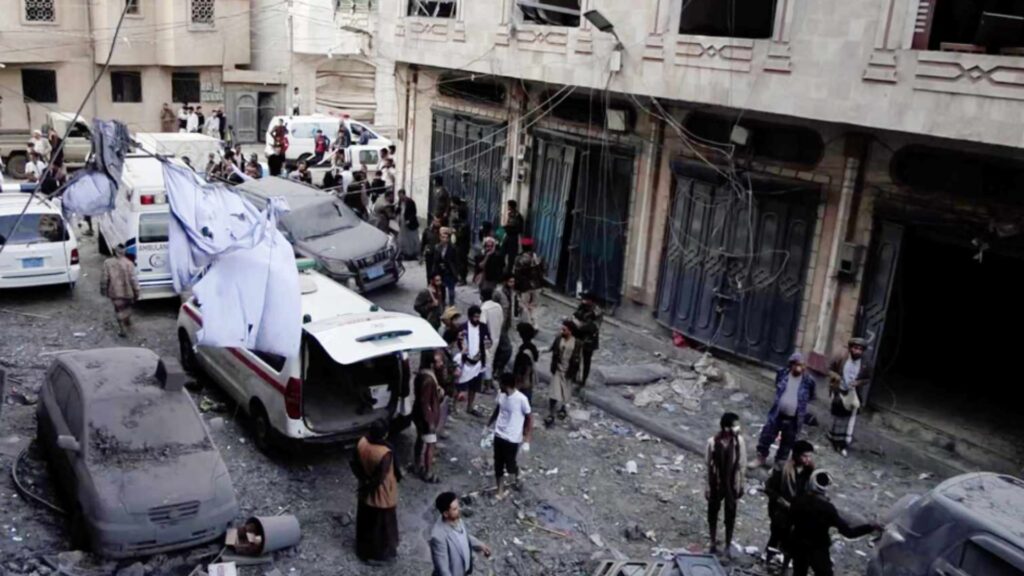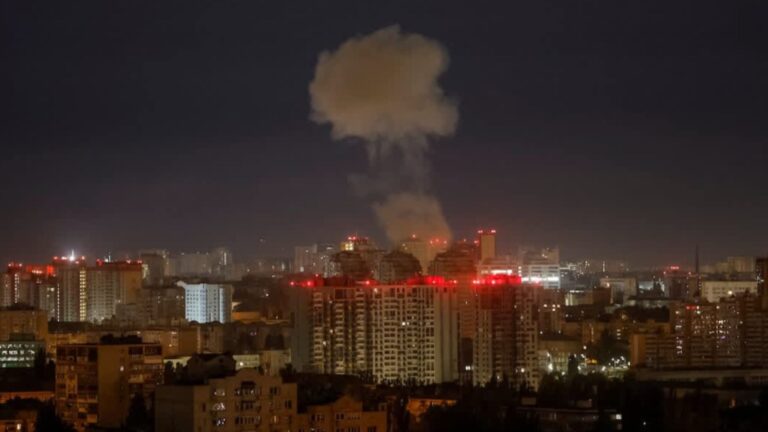
Israel conducted its most extensive military operation against Yemen to date on Thursday, unleashing over 65 munitions on the Houthi-controlled capital of Sanaa in retaliation for a drone attack that wounded at least 22 people in the Israeli resort city of Eilat.
The massive airstrike, codenamed “Operation Moving Package,” involved approximately 20 Israeli fighter jets alongside reconnaissance and refueling aircraft, marking the 19th Israeli attack on Yemen since the Gaza war began in October 2023.
Retaliation for Failed Defense
The strikes came less than 24 hours after a Houthi drone successfully penetrated Israel’s air defenses and exploded near a shopping area in Eilat on Wednesday evening. Israeli emergency services reported 22 injuries, including two men in serious condition with severe shrapnel wounds. The military acknowledged that its Iron Dome missile defense system detected the drone “relatively late” and failed to intercept it despite two engagement attempts, prompting an immediate investigation into the technical fault and corrective measures.
Defense Minister Israel Katz stated that the retaliatory operation eliminated “dozens of Houthi terror operatives” and destroyed stockpiles of drones and weaponry. In contrast, Houthi health ministry spokesman Anees Alasbahi reported eight civilian deaths and 142 injuries, with rescue teams still searching for victims beneath the rubble in residential districts of Sanaa.
Strategic Timing and Authorization
Prime Minister Benjamin Netanyahu personally authorized “Operation Moving Package” while aboard his official aircraft en route to the United Nations General Assembly in New York, underscoring the high-level coordination behind the mission. The Israeli jets flew approximately 2,200 kilometers to reach their targets, requiring mid-air refueling from tanker aircraft. According to the IDF, the operation struck seven Houthi military sites, including the General Staff headquarters, intelligence compounds, and weapons storage facilities used to “plan and execute terror attacks against Israel”.
The airstrikes began precisely as Houthi leader Abdul-Malik al-Houthi was delivering his weekly televised address, a timing analysts describe as a calculated political message designed to undermine the group’s morale and command structure. Since October 2023, the Iran-backed Houthis have launched over 150 drones and dozens of ballistic missiles at Israel, with an interception rate exceeding 98%. Wednesday’s breach exposed critical vulnerabilities in Israel’s multi-layered air defenses and accelerated IDF efforts to upgrade detection radars and interceptor response capabilities.











